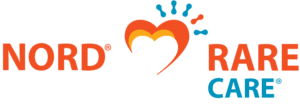Última actualización:
June 29, 2015
Años publicados: 2007, 2011
NORD gratefully acknowledges Dr. Hal Hoffman, Associate Professor of Pediatrics and Medicine, Division of Rheumatology, Allergy, and Immunology at the University of California at San Diego School of Medicine, for assistance in the preparation of this report.
Muckle-Wells syndrome (MWS) is one of the cryopyrin associated periodic syndromes (CAPS) caused by mutations in the CIAS1/NLRP3 gene. These syndromes are characterized by fever, rash and joint pain.
Individuals with MWS often have episodic fever, chills, and painful joints. Sometimes these symptoms are exacerbated by cold similar to the related condition FCAS, but can also be triggered by other stimuli. In most cases, Muckle-Wells syndrome (MWS) patients develop progressive hearing loss. In some MWS cases amyloidosis develops later in life, a disease in which an abnormal accumulation of the protein amyloid occurs in a patient’s tissues and organs. Accumulation of amyloid in the kidneys results in damage and often kidney failure if untreated.
Common symptoms of MWS include recurrent rashes beginning in infancy or early childhood, intermittent fevers, joint pain (usually with no apparent changes in tissue and cartilage), recurrent conjunctivitis (the inflammation of the outer most layer of the eye causing redness, discomfort and discharge from the eye), progressive hearing loss and amyloidosis. Symptoms can be unprecipitated, but can also be triggered by cold exposure as well as stress or exercise. Episodes generally last between 24 to 48 hours.
MWS is usually inherited in an autosomal dominant condition and is caused by a heterozygous mutation in the CIAS1/NLRP3 gene that codes for the protein cryopyrin (NALP3). Mutations in this gene are hypothesized to cause increased activity of a protein complex containing cryopyrin. This protein complex is known as the inflammasome and regulates inflammation in the body. Increased inflammasome activity results in increased release of a protein known as interleukin (IL) 1ß, which leads to symptoms of inflammation such as fever and joint pain.
Dominant genetic disorders occur when only a single copy of an abnormal gene is necessary to cause a particular disease. The abnormal gene can be inherited from either parent or can be the result of a new mutation (gene change) in the affected individual. The risk of passing the abnormal gene from affected parent to offspring is 50% for each pregnancy. The risk is the same for males and females.
Since MWS is a newly discovered condition, the actual incidence and prevalence of the disease are difficult to determine.
Diagnosis of MWS is determined through an evaluation of a patient’s symptoms. Confirmation of the diagnosis is achieved through genetic testing and the identification of a CIAS1/NLRP3 mutation, although not all MWS patients possess a mutation in this gene.
Treatment
To correct the hearing loss that often occurs, hearing aids may be used. Non-steroidal anti-inflammatory drugs are often used to alleviate joint pain. High doses of corticosteroids have shown to be somewhat effective, but may cause short- and long-term side effects.
Arcalyst (Rilonacept) by Regeneron Pharmaceuticals, an interleukin-1 blocker, was approved by the FDA in 2008 for the treatment of CAPS, including FCAS and MWS, in adults and children 12 and older.
Ilaris (Canakinumab) by Novartis Pharmaceuticals, a monoclonal antibody to interleukin-1 beta, was approved by the FDA in 2009 as a treatment for children and adults with CAPS, including FCAS and MWS.
Kineret (Anakinra) by Biovitrum pharmaceuticals, an IL-1 receptor antagonist, has been used extensively in MWS patients with excellent clinical results. However, it is not currently approved by the FDA for the treatment of MWS or any of the CAPS diseases.
Information on current clinical trials is posted on the Internet at www.clinicaltrials.gov. All studies receiving U.S. Government funding, and some supported by private industry, are posted on this government web site.
For information about clinical trials being conducted at the NIH Clinical Center in Bethesda, MD, contact the NIH Patient Recruitment Office:
Tollfree: (800) 411-1222
TTY: (866) 411-1010
Email: [email protected]
For information about clinical trials sponsored by private sources, contact:
www.centerwatch.com
Contact for additional information about Muckle-Wells syndrome:
Dr. Harold M. Hoffman
Associate Professor of Pediatrics and Medicine
Division of Rheumatology, Allergy, and Immunology
University of California at San Diego School of Medicine
(858)534-2108
RareConnect offers a safe patient-hosted online community for patients and caregivers affected by this rare disease. For more information, visit www.rareconnect.org.
JOURNAL ARTICLES
Drenth JPH, van der Meer JWM. The inflammasome – a linebacker of innate defense. New England Journal of Medicine. 2006;355(7):730-732.
Stojanov S, Kastner DL. Familial autoinflammatory diseases: genetics, pathogenesis and treatment. Current Opinion in Rheumatology. 2005;17:586-599.
Hoffman HM, Wanderer AA, Broide DH. Familial cold autoinflammatory syndrome: phenotype and genotype of an autosomal dominant periodic fever. J Allergy Clin Immunol. 2001;108(4):615-620.
Hoffman, H.M., Mueller, J.L., Broide, D.H., et al. Mutation of a new gene encoding a putative pyrin-like protein causes familial cold autoinflammatory syndrome and Muckle-Wells syndrome. Nature. 2001;29:301-305.
FROM THE INTERNET
Grateau G, Muckle-Wells syndrome; Orphanet encyclopedia, June 2003 https://www.orpha.net/data/patho/GB/uk-MWS.pdf.

NORD y la Fundación MedicAlert se han asociado en un nuevo programa para brindar protección a pacientes con enfermedades raras en situaciones de emergencia.
Aprende más https://rarediseases.org/patient-assistance-programs/medicalert-assistance-program/Asegurarse de que los pacientes y los cuidadores estén equipados con las herramientas que necesitan para vivir su mejor vida mientras manejan su condición rara es una parte vital de la misión de NORD.
Aprende más https://rarediseases.org/patient-assistance-programs/rare-disease-educational-support/Este programa de asistencia, primero en su tipo, está diseñado para los cuidadores de un niño o adulto diagnosticado con un trastorno raro.
Aprende más https://rarediseases.org/patient-assistance-programs/caregiver-respite/The information provided on this page is for informational purposes only. The National Organization for Rare Disorders (NORD) does not endorse the information presented. The content has been gathered in partnership with the MONDO Disease Ontology. Please consult with a healthcare professional for medical advice and treatment.